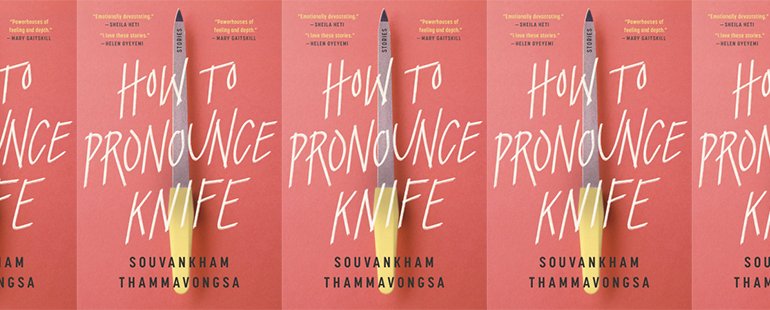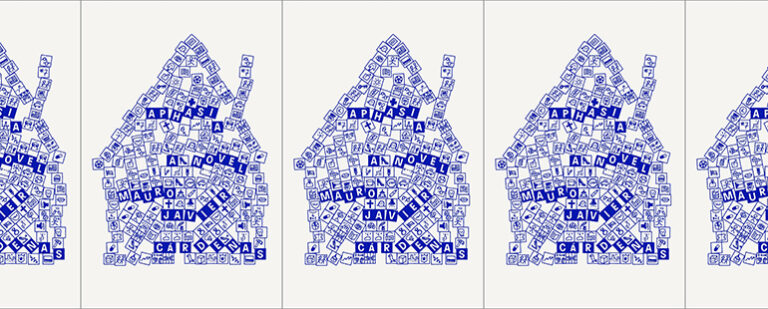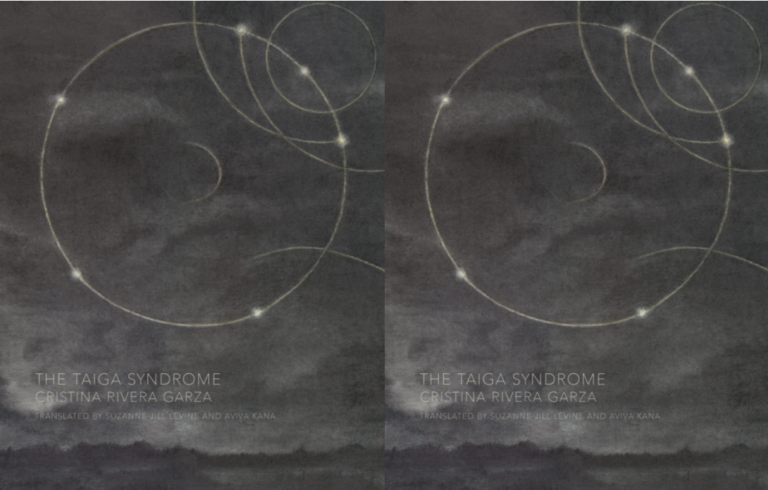“I think desire is a thing that all feelings revolves around”: An Interview with Souvankham Thammavongsa

“We have no metaphors for sex.”
By this, author and poet Souvankham Thammavongsa means that Lao people do not have an equivalent to the-birds-and-the-bees-talk given to children.
“This goes in there,” she adds, and we laugh, both recognizing our parents’ frankness, and their general lack of concern for our innocent ears.
I have never met Thammavongsa, which is more surprising than you would think. We are both Lao women, Canadian citizens, and writers. This, in case you did not know, is a tiny overlap of an already tiny Venn diagram. When I called her for the first time, we talked for over two hours, comparing notes on our lives and careers. We were curious about each other, like finding your kin in the wilderness. The questions went back and forth until the conversation became an open-ended debate on what it means and what it takes to write stories that are Lao while resisting well-trodden narratives of displacement.
Thammavongsa was born in a refugee camp in Nong Khai, Thailand before her parents were able to resettle in Canada. When they landed in Ontario, Thammavongsa, who was one year old, was only wearing a t-shirt and a diaper. It was the middle of January. Noticing this, Oma and Ernest, the older couple who had sponsored the Thammavongsa family and had come to welcome them at the airport, wrapped a fur hat around her bare feet. “My parents didn’t know how to speak English, but do you need to speak English to understand that this person will take care of you?” This would be the first story of many in our conversation in which Thammavongsa would paint a portrait of a quiet, profound sort of love.
Her family first lived in Oma and Ernest’s basement before setting out on their own in Toronto, where Thammavongsa was raised and educated. Toronto is also where she started attending open mics and reading and printing slim poetry books that she carried to school. She published her first collection, Small Arguments, in 2003; it would go on to win a ReLit Award. Her third, Light, won the prestigious Trillium Book Award for Poetry in 2014. In those years, she also published acclaimed short stories, including “Worms” (later retitled “A Few Distant Things”), which can be found in the Winter 2018-19 issue of Ploughshares. From the beginning of her career, Thammavongsa has shown herself to be a master of controlled intimacy, eschewing preciousness in favor of a clear-eyed humanity. She maintains this unsentimental beauty in her debut collection of short stories, How to Pronounce Knife, out today.
Most of the stories in the collection explore moments in the lives of Lao characters. A few of them, like “Slingshot,” “A Few Distant Things,” and “The Gas Station,” do not reveal the cultural background of their protagonist. Instead, what all the stories have in common is the stubbornness of desire manifested by the characters, whether it is the desire to defend your parents against mockery, the desire to fit in, the desire for physical intimacy, or the desire to be seen. It is a desire that is not expressed through dialogue as much as it is through almost indiscernible actions. A woman stares at a gas station attendant. She never says she wants him or that she even finds him attractive. Yet her observation of him is quiet, humorous, and unmistakably sensual. “To be ugly was to be particular, memorable, unforgettable even,” Thammavongsa writes. “He was uglier than that. Grotesque seemed right to describe him. He had hair like barnacles all over his chest. It reminded Mary of pubic hair, messy and wet and shining. There was something bold about him, walking so bare like that.” Here, plainness of language achieves fullness by keeping its lyricism on prosaic grounds. “She did not like how he used that first word. Hey. As though she were some hole in the wall she could just stick your questions into.” This sharp interplay between defiance and desire throughout the collection is a welcome strike to narratives that are often demanded of refugee writers—narratives laden with nobility, the commodification of trauma, and respectability politics.
Humor is another form of defiance Thammavongsa deploys in the inner monologues of her characters. Because humor requires us to distance ourselves in order to notice inconsistencies, her characters do not dwell in sadness. For example, in “Slingshot,” the elderly narrator of the story sees her former, much younger lover calling out to her on the street. Instead of answering, she spins around, wanting to be “beautiful and dark, and spinning all by herself, in the clear.” This is not to say that her characters are never sad; rather, they never let their heartbreak take a maudlin turn. Perhaps this is due to the fact that none of them contemplate the beginning or the ending of any event. Every moment they go through is but a point on a line that keeps moving forward. There is no longing for a distant past, nor romantic hope for a new future. Nostalgia, when it shows up at all, is focused only on what can be touched, like the food the characters eat or shoes they take off. Their points of reference do not depend on the people who misunderstand them, but on the things that they know to be true wherever they go, whether it’s the weight of worms or the weight of a woman’s breasts.
When the stories feature Lao refugees more specifically, Thammavongsa ensures that the gaze belongs to them. By centering refugee lives as a truth, rather than an interpretation, the characters are freed from merely reacting to external circumstances. Endowed with agency, they turn their attention inwards, untangling their own desires, articulating them in a language that they choose. In the collection’s titular story, “How To Pronounce Knife,” the child narrator argues and screams that the K in knife must be pronounced because that’s what her father taught her. The principal gives her a warning about rules and the way things are done, but the child has a rule of her own: her father must be right. He must be protected. The consequence of this agency is a reconfiguration of the landscape. Instead of being foreigners in a new land, they make foreigners out of those who would pity them. In a comical scene where two Lao children celebrate Halloween, they say Chick-a-Chee instead of trick or treat, and the charmed neighbors, finding this mispronunciation “adoooorable,” fill their pillowcases with extra candy every time. Is it pity? Is it affection? It doesn’t matter—the candy is in the bag. The story is about the joy of a fantastic windfall.
How To Pronounce Knife is tender, funny, and even sexy at times. It is also peppered with these references to sound. The letter K, which is there in the word knife, is not meant to be pronounced. What an interesting thought that is, for a child of refugees like me whose surname has flustered every schoolteacher I ever had. To exist, and to be left unpronounced. But Thammavongsa, by creating an aural world in this collection of short stories—stories that kahneyff, that cheap-cheap, that eeerrkk, or Chick-a-Chee—has made English speak to us in her own language.
Nay Saysourinho: In your book, we do not get a lot of geographical clues in the stories—not even an indication of where Laos is situated. As refugees, when we talk about our biographical details, this is something that comes up often. Tell me how you wanted to approach setting.
Souvankham Thammavongsa: I definitely did not want any of my stories to take place in the refugee camps. I wanted it to take place rooted in my own life experience. I feel like things in the refugee camps are my parents’ experience. Anything I know about it, it’s my parents’ experience. Yes, I was there, but I was a year old and I don’t remember anything about it. I often refer to the location simply as the word “here.” Here is very isolating for the reader because I don’t set up where we are. In some ways, the story itself dislocates the reader and forces the reader to be intimate with the text and the character. Here is the story. You’re in my world now, and these are the people in it. If I started a story in New York, or a street of New York, then people would come with their ideas of New York. I don’t get to control everything, so I tend to not give the location away.
NS: In a few stories, the wrong pronunciation of words is almost an act of rebellion from the children. They insist that their pronunciation is correct, even when they know it’s not. Like “Chick-a-Chee” instead of “trick or treat.” It invites the readers into a second language without saying anything in Lao. How important was it for you that these perceived flaws of articulation avoid clichés?
ST: I don’t hate myself. I am not ashamed of what I know and the way that I know it. I don’t see mistakes as things I don’t want to make. I think it’s good to make mistakes because then you know a thing more fully when you know it in error. It’s a thing to try to understand, to know where it comes from. That’s the language of my childhood. I want, when it’s trick-or-treating time, for people to say Chick-a-Chee! I would love for people to think of that story when it’s Halloween.
And you know what was so funny in the audiobook? I had to teach the Lao and Thai actors how to pronounce “knife” improperly properly. Because in that scene, the father pronounces it as kahneyff. I had to teach the actor how to mispronounce it, and I thought that was so wonderful because the story is about how to not say that word. It was just a wonderful moment where yes, doing the thing wrong is how to do it right.
NS: I want to go to humor. Until recently, it wasn’t often associated with Asian women. And it’s something I find in your book. The sex is not explicit, but the desire people have for other people is very physical, whether it’s the hair of someone’s arm, or their cuticles, or their breasts. There’s a physicality there that often we don’t get to speak of ourselves, that is explored by others without ever involving us. Tell me how you view physical desire and humor.
ST: I think desire is a thing that all feelings revolves around. Anger, sadness, hope. Those things come from desire. You’re angry because something you desire or you see for yourself isn’t there or is met with an obstacle that you want to work through, that other people might not want to work through. Sadness is an absence of desire. And I think desire itself is funny. In “Paris,” the main character, Red, she’s interested in her boss, but he’s such a horrible person. Is it really her desire or does she want an experience that everyone else is having, that she doesn’t get to have? Even what she desires, which is a nose, is such an unusual thing to desire. But her co-worker Somboun desires her. And as sad as we are for Red, she is horrible to Somboun; she won’t give him the time of day. He’s trying to tell her she’s beautiful and she says: “What do you know about women?”
NS: Things like heartbreak and nostalgia are all part of longing, and we don’t really encourage prolonged longing in our families. I find that my parents are very of the moment. And I don’t know if there’s a relationship with Theravada Buddhism (the faith in which our parents raised us in), which is so strong for us. The notion that this will pass.
ST: Yeah. My parents, they don’t talk about their childhood, they’re not nostalgic for where they grow up. But that might come up in terms of food, like they will say, “Oh, it doesn’t taste as good as it did when I was a kid,” or something like that. But they’re in the present, they don’t think of the past, they don’t talk about the past, they’re not concerned with the history of the past. And when we went on vacation, there was no itinerary. You know? You just did what you were going to do, you figure it out. Sabai sabai!
NS: Sabai sabai! Take it easy! Be content! Yes, exactly!
ST: The thing that you strive for is to yu la la, right?
NS: Yu la la, which we could say is something like “not moving”? Or more accurately, serenity in the face of passion? To hold and to let go. In our culture, letting go is seen as a good and desirable thing. We see this in your stories. Letting go can be sad, but it’s not the end of the world, and it’s not a tragedy. Whatever you are left with is okay too.
ST: In “Picking Worms”, it’s okay not to be a love object. You can still know love. In “Paris,” Red knows love. She doesn’t have to be a love object. In “Slingshot,” what I had in mind was someone like [French actress] Isabelle Huppert. What I love about her is that she does creepy so joyously. Women, we’re not allowed to be creepy. I think there could be a joy there, it can be funny.
NS: Desire at its core is joyous, I think. In “Randy Travis,” the mother feels such happiness when she listens to the music of country singer Randy Travis that her desire affects the people around her. What gift of love does her husband give her, but to take her to a Randy Travis concert? And then she is so happy she makes them this whole homecooked meal, and they feel loved by this woman, who had not shown love to them in a long time.
ST: I remember going to Lao parties, and I could tell when it wasn’t my mom’s padaek There are different variations. I would go to my cousins’ place, and there was padaek, but it looked black. My mom’s version looked like mud. Or they had crab legs in theirs, and ours didn’t, and I didn’t really like their version of padaek. I like the way my mom made it. My dad always referred to my mom’s cooking as see-mu as in, the fingerprint, the print of the finger.
NS: Fee-mu? I remember hearing that a lot too. My dad would say, “I like the touch, the fingerprints of your mother.” That’s as close as you’ll get to intimacy.
ST: Padaek is actually very intimate.
[Later that day, a lively debate broke out between Thammavongsa and I about the correct wording for fingerprint, on whether it was see-mu, as she had learned, or fee-mu, as I had learned. The answer, to our amusement, was both.]
NS: In “The Universe Would Be So Cruel,” Mr. Vong makes these beautiful wedding invitations. It’s another story of a Southeast Asian man showing his love by taking the brunt of it. His daughter gets jilted, and he blames himself by pretending that he’s the one who brought bad luck upon her.
ST: He is taking responsibility for something he isn’t even responsible for. He blames himself. The groom doesn’t show up, and he lies to his daughter. “I didn’t do this properly.” But it’s the guy who left. In the opening story, “How to Pronounce Knife,” I don’t show the scene where the child is crying in the office and is defending the parent. In “The Universe Would Be So Cruel,” I don’t show the scene where the daughter realizes she’s jilted either. I used a single word to capture that huge moment. And it’s just “jilted.”
NS: Explain me that choice.
ST: I feel like any time we’ve encountered images of ourselves, we’re always very sad and tragic. I want a different view of ourselves. I want to see us when we’re angry and ungrateful. Or I want to see when we’re joyous, taking pleasure in things. I don’t have to show a reader what jilted is. The single word, its plainness, its bareness is painful and does all the work that I don’t have to do. When something happens offstage, the fact that you don’t see it, it haunts the text.
NS: Lao-ness is woven into your stories in a way that’s not obstructive. What I mean is that you don’t fight yourself over it, you don’t explain it, but you also don’t try to pass it for something else. It’s not just white American stories with Lao names and Lao words shoehorned into them. My last question is, what do you think makes these stories Lao?
ST: Are they? I don’t feel like this is something I can answer as a writer. It’s more for a critic. And if I answer, I feel it takes away the magic of the text. When we watch a sunset, let’s just enjoy it, we don’t really need to know the mechanics of the sunset.
NS: How do we tie that back to literary critics who don’t see the sunset? Because you want the story to exist in its own right, on its own merit, but what if we do it in a way that is not understood? Will something be missing from the conversation?
ST: I can sort of already tell that in some of the reviews, they know that there’s something there, but they don’t know how to name it yet. They talk about the language a lot. There’s a compass, I feel, that is drawing people to the language, even though they do not know it yet, but they feel something there. But your question, what makes them Lao, I don’t know. I don’t set out with that idea, “This is going to be Lao.” It’s just there. You know when someone is born, we often need a birth certificate to prove that they are born. It’s not enough that their body is there. They’re living and breathing. It’s not enough. We need a birth certificate. With these stories, it’s very much the same way. There’s a text there, and there’s a life behind it. Who I am and how I’ve lived my life is in the text.


